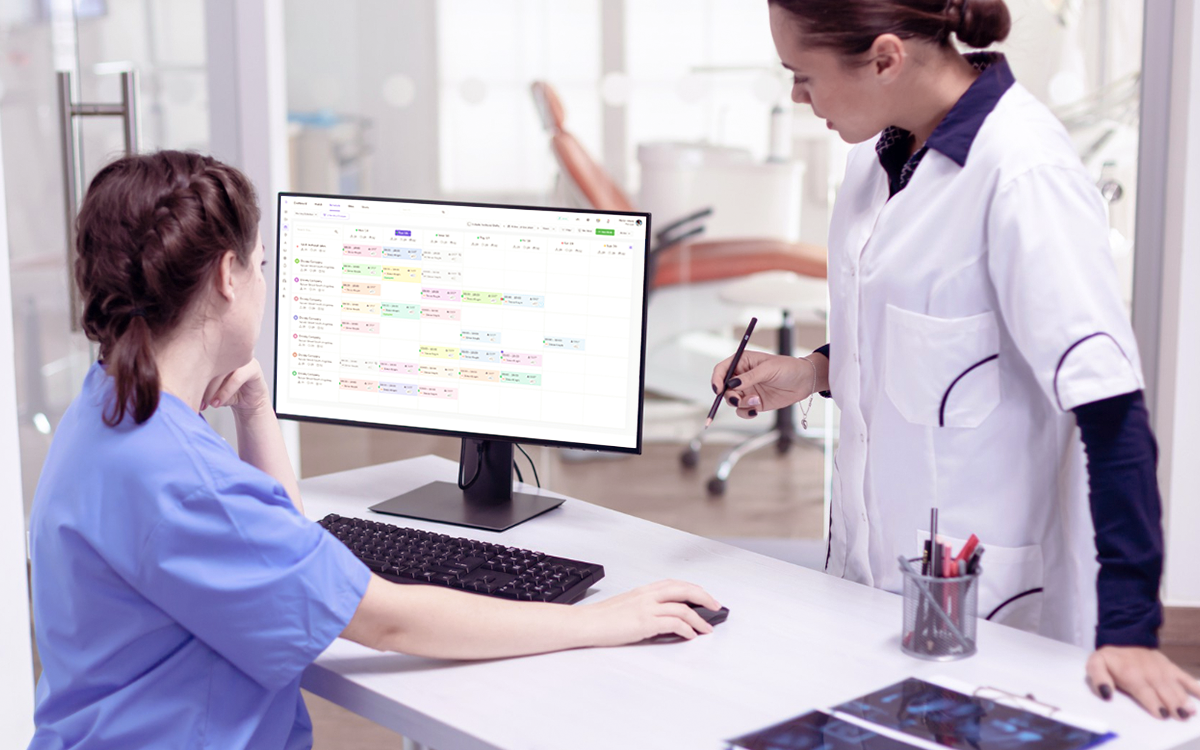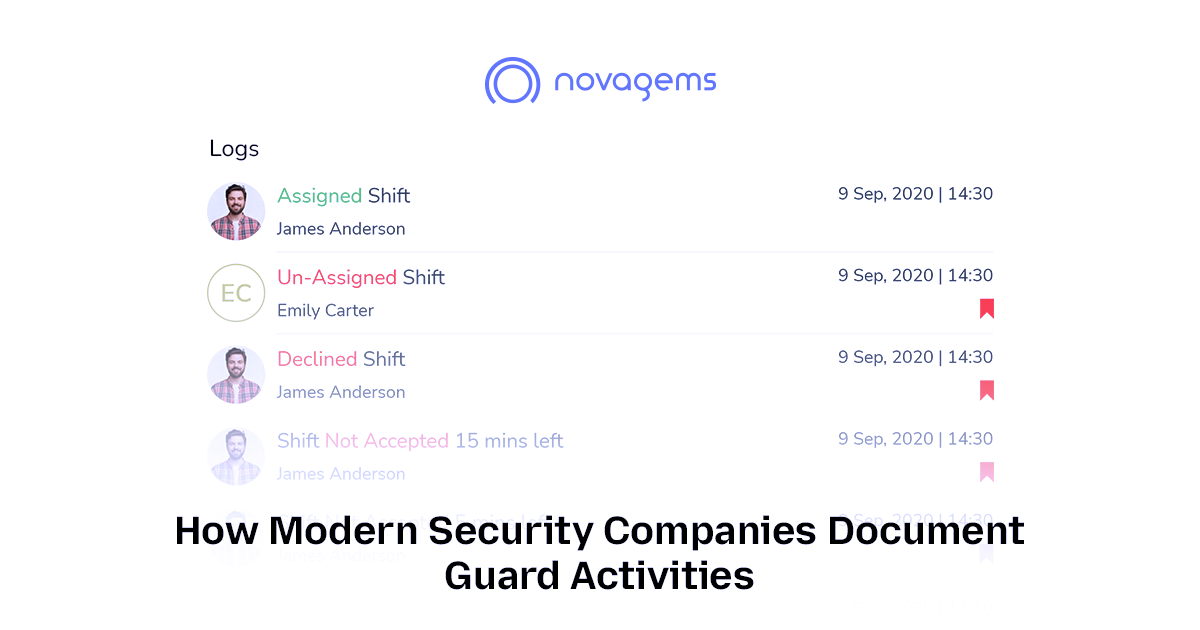How to Find the Right Hospital Management Software for Your Hospital
Wed, Feb 26, 2025
Read in 5 minutes
Know how to get the best hospital management software while learning the key features. The best ERP software is the one that will manage all of the things on one platform.

Choosing the right hospital management software (HMS) is critical to ensuring that your hospital runs smoothly and that patients receive high-quality care. With so many available options, it’s important to choose software that matches your hospital’s needs. In this blog, we will discuss the key factors to consider when selecting the right HMS for your hospital.
Top Features to Look for in Hospital Management Software
When evaluating software for healthcare, there are several essential features to consider. These features of hospital management software will help your hospital improve patient care, streamline operations, and ensure your hospital’s success.
1. Electronic Health Records (EHR) Integration
EHR integration is one of the most important features to look for in hospital management software. This feature allows healthcare providers to store and access patient records digitally. By having all medical data in one place, doctors and nurses can easily access patient histories, prescriptions, lab results, and more. It improves accuracy, reduces errors, and makes the overall patient care process more efficient.
A cloud-based ERP for hospital management system can offer further flexibility by enabling staff to access records remotely, ensuring that patient information is available when and where it’s needed.
2. Appointment Scheduling
Effective appointment scheduling is essential for hospitals. A reliable scheduling system allows patients to book appointments online, while also giving hospitals control over appointment slots, wait times, and doctor availability. It helps prevent overbooking, reduces patient waiting times, and ensures that doctors’ time is used efficiently.
With ERP for healthcare, you can streamline scheduling, minimize scheduling conflicts, and improve patient satisfaction by reducing no-shows through automatic reminders.
3. Billing and Financial Management
A seamless billing system within hospital management software can significantly improve hospital revenue cycle management. The right ERP software can automate the entire billing process, from generating invoices to managing insurance claims. It helps reduce human errors, ensures accurate billing, and speeds up payment collection.
The best ERP software will integrate the billing system with other hospital departments, improving communication and reducing the risk of missed or delayed payments.
4. Inventory and Supply Chain Management
Hospitals need to keep track of many supplies, including medical equipment and medications. A hospital management software with inventory management features can help you manage stock levels, track usage, and order supplies on time. This ensures that you don’t run out of critical medical supplies, while also reducing the risk of overstocking and waste.
A cloud-based ERP for hospital management can offer real-time tracking of inventory, which helps staff make informed decisions about purchasing and using medical supplies efficiently.
5. Reporting and Analytics
The ability to generate detailed reports and perform analytics is another important feature of hospital management software. These reports help hospitals track financial performance, patient care quality, staff productivity, and other key metrics. By having access to accurate data, hospital management can make informed decisions to improve operations.
Advanced analytics capabilities can also assist with identifying trends, patient outcomes, and compliance with regulations, helping the hospital meet goals and improve care.
6. Support and Training
The success of a hospital management software depends on how well hospital staff can use it. Therefore, it’s essential to choose software that comes with robust support and training. This can include user manuals, video tutorials, webinars, and on-site training sessions to ensure that hospital staff can navigate the system with ease.
Good software for healthcare providers will offer ongoing support to help resolve any issues and keep the system updated as needed.
7. Data Security
Data security is one of the most critical aspects of any hospital management software. Patient data is highly sensitive, and you need to ensure that it is protected against breaches or unauthorized access. The software should include security measures like encryption, user authentication, and role-based access control to safeguard patient information.
A cloud-based ERP for hospital management system can provide advanced security features, ensuring that all data is stored securely and that only authorized personnel can access it.
8. Customization and Scalability
Every hospital has unique needs, so it’s important to choose hospital management software that is customizable. The system should allow you to modify features to meet your specific requirements, whether it’s adapting workflows, adding modules, or integrating new features.
Moreover, as your hospital grows, your software should be scalable. A cloud-based ERP for hospital management offers flexibility and the ability to scale without the need for significant infrastructure upgrades.
9. Integration with Other Systems
Hospitals use various software solutions for different departments like pharmacy, radiology, and laboratories. Hospital management software should integrate seamlessly with these systems to ensure smooth data flow across the entire organization. Integration reduces duplication of data entry, minimizes errors, and improves operational efficiency.
Choose an ERP software that can easily integrate with existing systems and be adaptable to future technologies.
10. User-Friendliness
A user-friendly interface is crucial for ensuring that hospital staff can quickly learn how to use the system and start benefiting from it. The software should be intuitive and easy to navigate, so healthcare providers can focus on patient care rather than struggling with complex technology.
An intuitive interface also reduces training time, making it easier for staff to get up to speed and reducing the risk of errors.
Summary
Choosing the right hospital management software is crucial for improving the operational efficiency of your hospital and providing better patient care. By focusing on essential factors like EHR integration, appointment scheduling, billing systems, and data security, you can select a system that meets your hospital’s unique needs.
With the growing demand for technology in healthcare, it’s important to choose ERP for healthcare that is customizable, scalable, and offers strong support and security. Whether you’re upgrading your current system or adopting new software, make sure to select a solution that improves overall hospital operations and patient care.
By considering the features above, you can choose the best ERP software to support your hospital’s growth and improve the quality of healthcare services.
Get a Free Trial
Sign up For Newsletter
Latest Blog Posts
Get Started
Start being productive & grow your business
with Novagems





